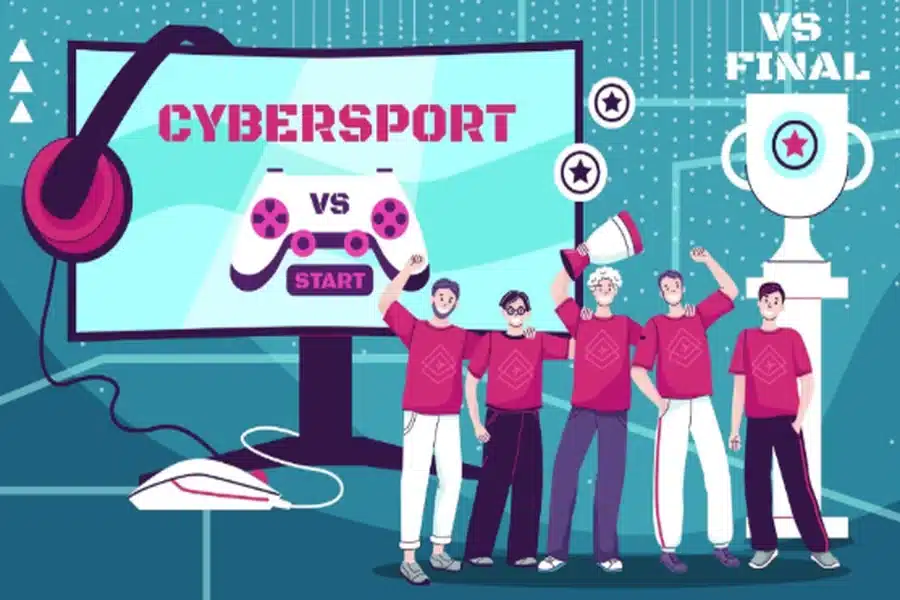E-sports vs. Traditional Sports: The Great Debate

Sports are changing before our very eyes. Traditional sports like football, soccer, and basketball face competition from the accelerating e-sports industry. Which sector will reign supreme in the future of entertainment? Let’s analyze the factors in this epic debate.
The Growth of E-Sports
Gone are the days when e-sports were limited to casual gaming. E-sports are thriving on an industrial scale and can host Super Bowl-sized spectacles. Players have attracted global streaming platforms, such as Twitch, that allow fans to interact with talent in real time. If you want to get even more involved, many fans now turn to a reliable betting app to add excitement to the action. This ‘sport’ goes beyond ‘gaming’. It is a new form of digital sport that requires immense dedication.
E-sports are on the verge of exploding into the mainstream, deeply embedded in American culture. The League of Legends World Championship and its events have captured the world’s attention and turned competitive gaming into a multi-billion-dollar industry.
The Long-standing Dominance of Traditional Sports
Traditional sports have been central to global entertainment for decades and show no signs of slowing down anytime soon. There’s nothing like a stadium filled with cheering crowds and a breathtaking moment like a last-minute goal. Sporting events offer the most significant emotional experience without parallel:
- A global fan base: The reach of these events, including the World Cup and the NBA Finals, is in the billions.
- Cultural Impact: Sports encompass every community, from the local to the global — eSports are a part of every society.
- Longevity: Football and basketball are just two of many popular sports across generations.
For these people, sports’ value lies not only in the games themselves but also in the traditions and narratives that bind fans together. Whether following a team’s journey or celebrating a big win, the community aspect is everything. To stay connected and up-to-date with sports, check out https://www.instagram.com/melbetindia_official/.
Comparing the Entertainment Value of Both
The comparison between e-sports and traditional sports shows traditional sports as an unwavering competitor. This is not just about competition, but also about the spectator experience. Traditional sports use fast-paced action and real-world stakes as a selling point, while e-sports use strategy and real-time action as a focus for immersion. Let’s take a look at what makes each different.
Viewer Engagement in E-Sports
E-sports remain vital because of fan interaction. Through Twitch, fans can participate and influence gameplay to interact with their heroes. Chat rooms buzz with fans cheering, arguing, and strategizing. It’s much more than watching; it’s participating in the fight.
E-sports is exceptional for another reason: its inclusiveness. There are no geographic limitations, no need for expensive tickets or exclusive television broadcasts. Fans get an unparalleled sense of immersion, as if they are with the players, experiencing every decisive action.
Viewer Engagement in Traditional Sports
In conventional sports, connection stems from the masses packed into the venue. The atmosphere, the sounds of the packed crowd, and the anticipation create a blend unlike any other, which, while difficult to replicate, is captivating. Undoubtedly, the most unforgettable part is the buildup and anticipation culminating in the action.
Fans cannot binge their team’s games at home without delay. The rise of social media allows players and coaches to add glimpses of, share moments, and tell tales from beyond the field, which have deepened fans’ love. This bond in such sports is what maintains the persistence in tradition.

Financial Aspects of E-Sports vs. Traditional Sports
The rise of sponsorship deals and streaming platforms has led e-sports to slowly catch up to traditional sports. By 2023, the e-sports market globally grew to over $1 billion, aided by plume investments from major brands like Coca-Cola and Nike in tournaments and player contracts. It is evident that the face of gaming is changing—and so are its finances.
Traditional sports are still considered by far one of the most lucrative markets. Teams from the NFL, NBA, and Premier League gain ever-growing revenue from media rights, merchandise, sponsorships, and other additional global streams. Deep-rooted devotion from fans and the global reach of such franchises give them unyielding financial stability.
The Future of Sports: E-Sports Or Traditional?
It’s unlikely that one will completely dominate the other. E-sports will appeal to younger audiences as it moves towards a digital-first approach. Traditional sports will remain the heartbeat of global entertainment, connecting audiences from different regions through culture, tradition, and shared experiences. Both will continue to play their ever-changing roles in the sports landscape.
